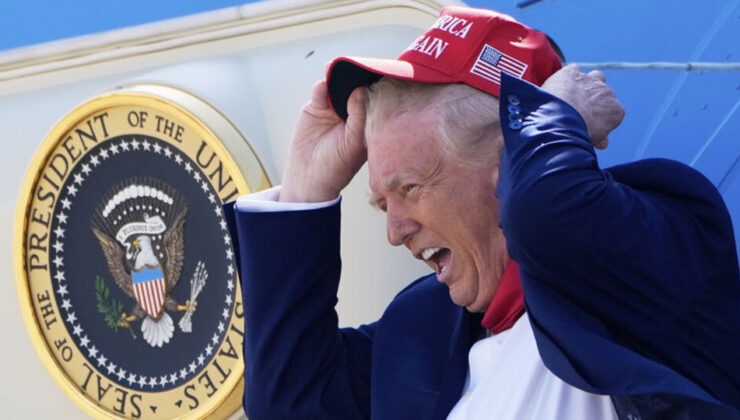

As demonstrations in support of irregular migrants continue to unfold in Los Angeles, President Donald Trump’s recent decision to implement a travel ban on citizens from 12 specific countries has taken effect. This decision has sparked further debate and tension regarding immigration policies in the United States.
The travel ban, primarily targeting nations in Africa and the Middle East, was signed into action by Trump on June 5. It includes countries such as Afghanistan, Myanmar, Chad, the Republic of Congo, Equatorial Guinea, Eritrea, Haiti, Iran, Libya, Somalia, Sudan, and Yemen. The administration has cited “threats to national security” as the rationale behind this move.
In addition to these 12 countries, travel restrictions have also been imposed on citizens from Burundi, Cuba, Laos, Sierra Leone, Togo, Turkmenistan, and Venezuela. However, there are exceptions for individuals from these nations who already legally reside in the US or hold valid visas, especially if they are deemed to “serve the national interests of the US.”
In a statement released on the White House’s social media channel X, Trump emphasized, “We will not allow people who want to harm us to enter our country.” He also indicated that the list of countries subject to travel restrictions might be adjusted in the future, with new nations potentially being added as “new threats emerge.”
As the travel ban comes into effect, it remains uncertain how this policy will influence the ongoing protests in Los Angeles. These demonstrations have been marked by increasing violence, reflecting the heightened tensions surrounding immigration enforcement in the US.
SİGORTA
8 saat önceBİLGİ
3 gün önceSİGORTA
4 gün önceSİGORTA
6 gün önceSİGORTA
11 gün önceSİGORTA
14 gün önceSİGORTA
14 gün önceSİGORTA
15 gün önceSİGORTA
18 gün önceSİGORTA
19 gün önce 1
DJI Mini 5: A Leap Forward in Drone Technology
20184 kez okundu
1
DJI Mini 5: A Leap Forward in Drone Technology
20184 kez okundu
 2
xAI’s Grok Chatbot Introduces Memory Feature to Rival ChatGPT and Google Gemini
14194 kez okundu
2
xAI’s Grok Chatbot Introduces Memory Feature to Rival ChatGPT and Google Gemini
14194 kez okundu
 3
7 Essential Foods for Optimal Brain Health
13040 kez okundu
3
7 Essential Foods for Optimal Brain Health
13040 kez okundu
 4
Elon Musk’s Father: “Admiring Putin is Only Natural”
12896 kez okundu
4
Elon Musk’s Father: “Admiring Putin is Only Natural”
12896 kez okundu
 5
Minnesota’s Proposed Lifeline Auto Insurance Program
10761 kez okundu
5
Minnesota’s Proposed Lifeline Auto Insurance Program
10761 kez okundu
Sigorta Güncel Sigorta Şikayet Güvence Haber Hasar Onarım Insurance News Ajans Sigorta Sigorta Kampanya Sigorta Ajansı Sigorta Sondakika Insurance News